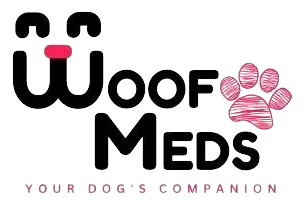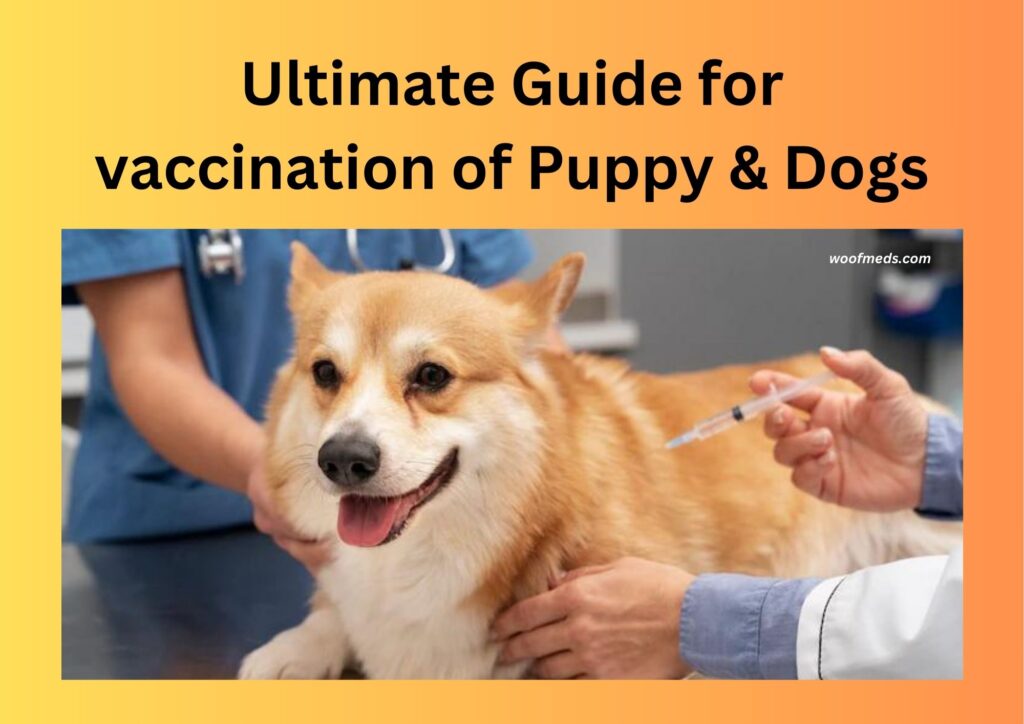Vaccination plays a crucial role in the health and well-being of puppies and dogs, serving as a cornerstone of preventive healthcare. Just as with humans, vaccines help protect our furry companions from a variety of infectious diseases that can cause serious illness or even death. In this comprehensive guide, we’ll delve into the essential aspects of vaccinating puppies and dogs, from understanding the importance of vaccination to navigating the vaccination schedule and beyond.
Pet owners often have questions about which vaccines their furry friends need, how vaccines work, and the potential risks and benefits associated with vaccination. By providing clarity on these topics, we aim to empower dog owners to make informed decisions about their pet’s healthcare.
Whether you’re a new puppy parent or an experienced dog owner, this ultimate guide will serve as a valuable resource to ensure that your canine companion receives the necessary vaccinations to live a long, healthy life. Let’s embark on this journey to safeguard the health of our beloved four-legged friends.
Understanding Vaccinations
What Vaccines Are Necessary?
- Core Vaccines:
- Core vaccines are those considered essential for all dogs, regardless of their lifestyle or environment. These vaccines protect against highly contagious and potentially fatal diseases.
- Examples of core vaccines include:
- Distemper: A viral disease that affects multiple organs and can be deadly, especially in puppies.
- Parvovirus: Highly contagious and often fatal, especially in puppies, causing severe gastrointestinal symptoms.
- Adenovirus (Hepatitis): Protects against canine infectious hepatitis, which can lead to liver damage and other serious complications.
- Rabies: A fatal viral disease that affects the central nervous system, transmissible to humans, and required by law in many regions.
- Non-core Vaccines:
- Non-core vaccines are recommended based on a dog’s lifestyle, geographic location, and risk of exposure to specific pathogens.
- Examples of non-core vaccines include:
- Bordetella (Kennel Cough): Protects against a highly contagious respiratory infection common in environments where dogs are in close proximity, such as boarding facilities or dog parks.
- Leptospirosis: A bacterial disease that can infect both animals and humans, transmitted through contaminated water or soil.
- Lyme Disease: Transmitted by ticks, this bacterial infection can cause joint pain, fever, and other symptoms in dogs.
How Vaccines Work
- Vaccines work by stimulating the immune system to recognize and defend against specific pathogens, such as viruses or bacteria.
- When a dog is vaccinated, it receives a modified or killed form of the pathogen or specific components of the pathogen. This exposure triggers the immune system to produce antibodies that provide protection against future infections.
- Upon subsequent exposure to the actual pathogen, the immune system is primed to mount a rapid and effective response, preventing or reducing the severity of the disease.
Risks and Benefits of Vaccination
- Benefits:
- Prevents serious and potentially life-threatening diseases.
- Helps establish herd immunity, protecting vulnerable individuals in the population.
- Cost-effective compared to the treatment of diseases.
- Risks:
- Mild side effects such as lethargy or soreness at the injection site are common and typically resolve quickly.
- In rare cases, more severe reactions, including allergic reactions or immune-mediated diseases, may occur.
- Proper administration and monitoring can minimize risks associated with vaccination.
Dear Pet Owners,
As a veterinarian, I cannot stress enough the critical importance of vaccinating your furry companions. Just as vaccines are crucial for human health, they are equally vital for the well-being of our canine friends. Vaccinations protect dogs from a variety of potentially deadly diseases such as rabies, parvovirus, distemper, and canine hepatitis. These diseases can spread rapidly among dogs, causing suffering and even death. However, through timely vaccination, we can significantly reduce the risk of these illnesses. Moreover, vaccination not only safeguards individual dogs but also contributes to the broader community’s health by preventing the spread of contagious diseases. I urge you to schedule regular vaccination appointments with your veterinarian and ensure that your beloved pets are up-to-date on their vaccinations. Together, let’s keep our furry companions healthy and happy.
Best regards, Dr. Saumya Thakur (B.V.Sc. & A.H., M.V.Sc. Medicine)
Vaccination Schedule
| Vaccination Schedule | Age | Vaccines |
|---|---|---|
| A. Puppy Vaccination Schedule | ||
| 1. Initial Vaccinations (6-8 weeks) | 6-8 weeks | – Distemper |
| – Parvovirus | ||
| – Adenovirus (Hepatitis) | ||
| 2. Booster Shots (10-12 weeks) | 10-12 weeks | – Distemper |
| – Parvovirus | ||
| – Adenovirus (Hepatitis) | ||
| 3. Final Boosters (14-16 weeks) | 14-16 weeks | – Distemper |
| – Parvovirus | ||
| – Adenovirus (Hepatitis) | ||
| – Rabies | ||
| B. Adult Dog Vaccination Schedule | ||
| 1. Core Vaccines | – Distemper | |
| – Parvovirus | ||
| – Adenovirus (Hepatitis) | ||
| – Rabies | ||
| 2. Non-core Vaccines | – Bordetella (Kennel Cough) | |
| – Leptospirosis | ||
| – Lyme Disease | ||
| C. Vaccination for Special Cases | ||
| – Shelter Dogs | Varies based on age | – Tailored based on individual |
| and health status | circumstances | |
| – Pregnant Dogs | Before mating | – Pre-breeding vaccination may be considered |
| and during pregnancy | depending on risk factors |
NOTE: We advise consulting your vet before administration of any kind of vaccine or medication.
Common Vaccines for Puppies and Dogs
| Vaccine | Disease Prevented | Administration | Schedule |
|---|---|---|---|
| A. Distemper | Canine Distemper | Injection | Puppy: Initial, Booster, Final Boosters |
| Adult: Core Vaccine | |||
| B. Parvovirus | Canine Parvovirus | Injection | Puppy: Initial, Booster, Final Boosters |
| Adult: Core Vaccine | |||
| C. Adenovirus (Hepatitis) | Canine Infectious Hepatitis | Injection | Puppy: Initial, Booster, Final Boosters |
| Adult: Core Vaccine | |||
| D. Parainfluenza | Canine Parainfluenza | Injection | Often combined with other vaccines |
| Puppy and Adult: Non-core Vaccine | |||
| E. Rabies | Rabies | Injection | Puppy: Final Boosters |
| Adult: Core Vaccine (Booster every 1-3 years) | |||
| F. Bordetella | Bordetella Bronchiseptica | Intranasal/Injection | Puppy and Adult: Non-core Vaccine |
| (Kennel Cough) | Depends on risk factors and lifestyle | ||
| G. Leptospirosis | Leptospirosis | Injection | Puppy and Adult: Non-core Vaccine |
| Depends on risk factors and lifestyle | |||
| H. Lyme Disease | Lyme Disease | Injection | Puppy and Adult: Non-core Vaccine |
| Depends on risk factors and geographic area | |||
| I. Canine Influenza | Canine Influenza | Injection | Puppy and Adult: Non-core Vaccine |
| Depends on risk factors and lifestyle |
Each of these vaccines plays a critical role in protecting dogs from various infectious diseases. The administration and scheduling may vary depending on factors such as age, health status, and lifestyle. It’s important to consult with a veterinarian to determine the appropriate vaccination plan for your puppy or dog.
Administration and Side Effects
Proper Administration of Vaccines
- Vaccines should always be administered by a licensed veterinarian or a trained veterinary professional to ensure proper handling and minimize the risk of errors.
- Follow the manufacturer’s instructions meticulously regarding the dosage, route of administration (intramuscular, subcutaneous, or intranasal), and storage conditions (refrigeration, protection from light).
- Ensure the use of sterile needles, syringes, and vaccine vials to prevent contamination and reduce the likelihood of adverse reactions.
- Verify the expiration date and integrity of the vaccine before administration, discarding any expired or compromised products.
- Keep detailed records of each vaccination, including the type of vaccine administered, the date, the batch number, and the dog’s identification information, to facilitate tracking and monitoring.
Common Side Effects
- Mild side effects following vaccination are relatively common and typically include local reactions such as soreness, swelling, or redness at the injection site.
- Dogs may experience transient lethargy, mild fever, or decreased appetite for a day or two after vaccination, which usually resolves spontaneously.
- Occasionally, allergic reactions may occur, characterized by symptoms such as itching, hives, facial swelling, or difficulty breathing. These reactions require prompt veterinary evaluation and treatment.
- Monitor your dog closely for any signs of more severe adverse reactions, such as vomiting, diarrhea, weakness, collapse, or pale gums, which could indicate anaphylaxis or other serious complications.
- Contact your veterinarian immediately if you observe any concerning symptoms, as early intervention can help mitigate potential risks and ensure the well-being of your pet.
Signs of Vaccine Reactions
- Watch for signs of allergic reactions, including itching, redness, swelling, or hives, which may develop within minutes to hours after vaccination.
- Monitor for more severe reactions such as difficulty breathing, vomiting, diarrhea, weakness, collapse, or pale gums, which require immediate veterinary attention.
- Be alert to persistent or worsening symptoms, including swelling at the injection site, lethargy, fever, or behavioral changes, which could indicate a vaccine-related adverse event.
- Keep a record of the timing and nature of any observed reactions, as well as the specific vaccine administered, to inform discussions with your veterinarian and facilitate appropriate follow-up care.
- Discuss any concerns or questions about vaccine reactions with your veterinarian, who can provide guidance on monitoring, management, and potential modifications to the vaccination protocol to ensure your dog’s safety and well-being.
Tips for Puppy and Dog Owners
Choosing a Veterinarian
- Research local veterinary clinics and practitioners to find a reputable veterinarian who specializes in companion animal care.
- Consider factors such as location, hours of operation, emergency services availability, and compatibility with your personal values and preferences.
- Schedule an initial consultation or visit to assess the clinic’s facilities, staff, and approach to veterinary medicine, ensuring a comfortable and positive experience for both you and your pet.
- Establish open communication and trust with your veterinarian, discussing any concerns, questions, or goals regarding your pet’s health, behavior, and well-being.
Keeping Records
- Maintain comprehensive and up-to-date medical records for your puppy or dog, including vaccination history, preventive care (e.g., deworming, flea and tick control), and any medical treatments or procedures.
- Use a dedicated pet health record booklet, electronic database, or mobile app to organize and track important information, making it easily accessible for reference and sharing with veterinary professionals as needed.
- Regularly review and update your pet’s records, particularly after veterinary appointments or changes in health status, to ensure accuracy and continuity of care.
Maintaining a Vaccination Schedule
- Work closely with your veterinarian to establish and adhere to a vaccination schedule tailored to your puppy or dog’s age, health status, lifestyle, and environmental risk factors.
- Follow recommended guidelines for core and non-core vaccinations, ensuring timely administration of initial doses, booster shots, and periodic revaccination as necessary.
- Mark vaccination due dates on a calendar or set reminders on your phone or computer to help you stay organized and proactive in maintaining your pet’s immunization status.
Importance of Socialization
- Begin socializing your puppy from a young age, exposing them to diverse environments, people, animals, sounds, and experiences in a positive and controlled manner.
- Gradually introduce your puppy to new stimuli, using rewards, praise, and gentle guidance to build confidence, resilience, and social skills.
- Arrange playdates with other well-mannered dogs, enroll in puppy socialization classes, and participate in supervised group activities to foster healthy interactions and friendships.
Environmental Considerations
- Create a safe and stimulating environment for your puppy or dog, minimizing potential hazards such as toxic plants, chemicals, sharp objects, or inaccessible areas.
- Provide adequate shelter, bedding, and climate control to ensure your pet’s comfort and well-being, particularly during extreme temperatures or inclement weather.
- Regularly inspect and secure fencing, gates, and outdoor enclosures to prevent escapes and unauthorized access to hazards or unsupervised areas.
- Practice responsible pet ownership by picking up after your dog, disposing of waste properly, and respecting local regulations and community guidelines regarding pet ownership and behavior.
Conclusion
Summary of Key Points
- Vaccination is essential for the health and well-being of puppies and dogs, protecting them from a range of infectious diseases.
- Core vaccines, such as distemper, parvovirus, adenovirus (hepatitis), and rabies, are recommended for all dogs, while non-core vaccines may be indicated based on individual risk factors.
- Proper administration of vaccines, including dosage, route, and timing, is critical to ensure effectiveness and minimize adverse reactions.
- Common side effects of vaccination are usually mild and transient, but more severe reactions require prompt veterinary attention.
- Monitoring for signs of vaccine reactions and maintaining accurate medical records are important aspects of responsible pet ownership.
Final Recommendations for Dog Owners
- Choose a reputable veterinarian and establish a trusting relationship to provide comprehensive care for your puppy or dog.
- Keep thorough records of vaccinations, preventive care, and medical treatments, ensuring timely updates and accessibility for reference.
- Adhere to a vaccination schedule tailored to your pet’s needs, lifestyle, and environmental risk factors, prioritizing core vaccines while considering non-core options as appropriate.
- Prioritize socialization and environmental enrichment to promote your dog’s physical, mental, and emotional well-being, fostering a balanced and fulfilling life.
- Maintain a safe and supportive environment for your dog, addressing potential hazards and providing adequate shelter, nutrition, and exercise.
Importance of Regular Veterinary Check-ups and Vaccinations
- Regular veterinary check-ups are crucial for early detection and prevention of health problems, allowing timely intervention and treatment.
- Vaccinations play a key role in preventing infectious diseases and maintaining herd immunity within the dog population.
- Routine vaccinations, along with other preventive measures such as deworming and parasite control, help safeguard your pet’s health and minimize the spread of contagious illnesses.
- Veterinary professionals serve as valuable partners in promoting your dog’s health and well-being, offering guidance, expertise, and personalized care tailored to your pet’s individual needs.
In conclusion, by prioritizing regular veterinary check-ups, adhering to vaccination schedules, and implementing best practices in pet care and management, dog owners can provide their furry companions with a lifetime of health, happiness, and companionship.
FAQs about Vaccination
A. How Often Should My Dog Be Vaccinated?
- The frequency of vaccination depends on several factors, including the type of vaccine, the dog’s age, health status, lifestyle, and local regulations.
- Core vaccines, such as rabies, often require periodic booster shots every 1-3 years to maintain immunity, while non-core vaccines may have different schedules.
- Consult with your veterinarian to determine the appropriate vaccination schedule for your dog, based on their individual needs and risk factors.
B. Can My Dog Get Vaccinated if They Are Sick?
- Vaccination is generally not recommended for dogs that are currently ill or have a compromised immune system, as their ability to mount an effective immune response may be impaired.
- If your dog is sick, consult with your veterinarian to assess their condition and determine the best course of action, which may include delaying vaccination until they have recovered.
- In some cases, vaccination may be contraindicated due to the potential for exacerbating existing health issues or causing adverse reactions.
C. Are There Alternatives to Vaccination?
- While vaccination is the most effective way to prevent many infectious diseases in dogs, there may be alternative approaches or adjunctive measures to reduce the risk of exposure.
- Some preventive strategies include minimizing contact with potentially infected animals, practicing good hygiene, providing a nutritious diet, and optimizing your dog’s overall health and immune function.
- Discuss with your veterinarian any concerns or preferences regarding vaccination, as they can provide guidance on alternative preventive measures based on your dog’s specific circumstances.
D. What Should I Do if My Dog Has a Reaction to a Vaccine?
- If your dog experiences a reaction to a vaccine, such as swelling, lethargy, vomiting, diarrhea, or difficulty breathing, contact your veterinarian immediately for guidance.
- Keep a record of the vaccine administered, the timing of the reaction, and the nature and severity of the symptoms to inform discussions with your veterinarian.
- Depending on the severity of the reaction, your veterinarian may recommend observation, supportive care, or further evaluation and treatment to address any complications.
- In rare cases of severe vaccine reactions or anaphylaxis, seek emergency veterinary care promptly to ensure timely intervention and management.



